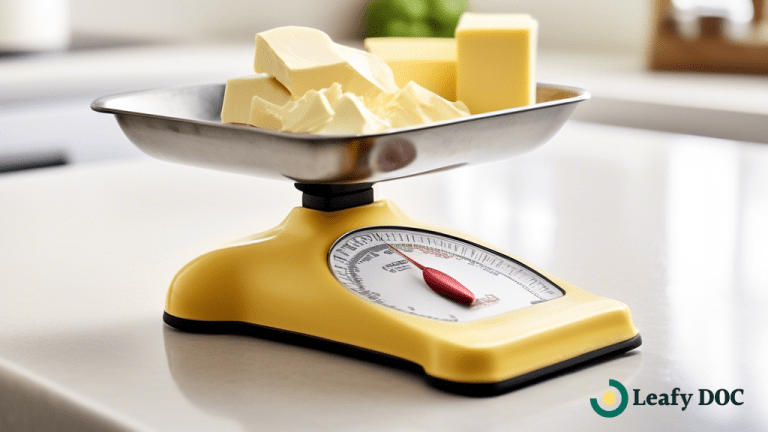How Long Does Weed Stay In Your Blood
by Ayesha Aziz · February 21, 2024
Curious about how long weed stays in your blood? Get the truth and debunk myths in this eye-opening article. Click now for all the facts you need!

Did you know that according to recent studies, around 16% of American adults use marijuana? That means there’s a good chance that you or someone you know has tried it at least once.
Maybe you’re curious about how long marijuana stays in your blood. Whether it’s for personal reasons or a job-related concern, understanding the duration of weed detection in your blood is important. In this article, we will explore the factors affecting weed detection, and the testing methods used, and provide you with the information you need to make informed decisions.
When it comes to the detection of weed in your blood, several factors come into play. Metabolism plays a significant role as it determines how quickly your body processes the cannabinoids found in marijuana. Additionally, the frequency and amount of marijuana use can influence the detection window.
It’s interesting to note that even occasional users can test positive for marijuana in their blood for up to a week after use. On the other hand, regular users may have detectable levels for several weeks or even months. Understanding these factors will help you better comprehend the duration of weed detection and how it may vary from person to person.
So, if you’re wondering how long marijuana stays in your blood, keep reading to find out more.
Key Takeaways
- The duration of weed detection in the blood can vary depending on factors such as metabolism, frequency of use, and body composition.
- Occasional users can test positive for marijuana in their blood for up to a week, while regular users may have detectable levels for weeks or even months.
- Testing methods for weed in the blood include immunoassay, GC-MS, LC-MS, and hair follicle tests.
- It is important to consider the consequences of weed detection in the blood for employment or legal purposes, as well as the limitations and context of drug testing and results.
Metabolism and Weed Detection
You may be wondering how long weed lingers in your bloodstream, but it all depends on your metabolism, which acts like a bustling highway, either speeding up or slowing down the detection process.
Just like a highway with fast-moving cars, a high metabolism can quickly break down the compounds in weed, causing them to exit your system faster. On the other hand, a slower metabolism allows the compounds to stay in your bloodstream for a longer period of time.
Metabolism is the chemical process that converts food and drinks into energy. It varies from person to person, and factors such as age, weight, and overall health can influence its speed. If you have a fast metabolism, your body is like a well-oiled machine, efficiently processing substances and eliminating them at a rapid pace. As a result, weed may only stay in your blood for a few days or even just a couple of hours.
However, if you have a slower metabolism, the detection process may take longer. Your body may take its time breaking down the compounds in weed, causing them to stay in your bloodstream for a longer period. In this case, weed can be detectable in your blood for up to several weeks.
It’s important to note that individual results may vary, and it’s always best to consult with a medical professional for accurate information about how long weed may stay in your blood based on your specific metabolism.
Factors Affecting Weed Detection in Blood
Factors that can impact the duration of weed detection in your bloodstream include your metabolism, how often you use weed, and your body composition. Let’s break it down for you.
Firstly, your metabolism plays a key role in how long weed stays in your blood. If you have a fast metabolism, your body processes substances quicker, including THC, the active compound in weed. This means that weed may not stay in your bloodstream for as long as it would for someone with a slower metabolism. On the other hand, if you have a slower metabolism, it may take longer for your body to eliminate THC, resulting in a longer detection window.
Secondly, the frequency of weed use can also affect how long it stays in your blood. If you’re a frequent user, THC can accumulate in your system over time, leading to a longer detection window. However, if you only use weed occasionally, the presence of THC in your bloodstream may be shorter-lived.
Lastly, your body composition can also impact the duration of weed detection in your blood. THC is known to be stored in fat cells, so individuals with higher body fat percentages may have a longer detection window. Conversely, those with lower body fat percentages may eliminate THC from their system more quickly.
If you have any concerns about how long weed may stay in your blood, it’s always best to consult with a healthcare coach for personalized advice.
Testing Methods for Weed in Blood
Imagine a scenario where a blood test can detect the remnants of a certain herbal substance that shall remain nameless, lingering within your veins. It’s a situation that may cause some anxiety and uncertainty, especially for those who enjoy partaking in certain recreational activities.
However, understanding the testing methods for weed in blood can help alleviate some of those concerns. Here are four key testing methods that are commonly used:
- Immunoassay Test: This is the initial screening test used to determine the presence of weed in the blood. It’s a quick and cost-effective method that relies on antibodies to detect the presence of THC, the main psychoactive compound in weed. While it’s highly sensitive, it can sometimes yield false-positive results.
- Gas Chromatography-Mass Spectrometry (GC-MS): This is a confirmatory test that is often used if the initial immunoassay test comes back positive. It’s a more accurate method that separates and identifies the specific compounds in the blood sample. GC-MS is considered the gold standard for drug testing and provides reliable results.
- Liquid Chromatography-Mass Spectrometry (LC-MS): This is another confirmatory test that can be used in conjunction with or as an alternative to GC-MS. It’s especially useful for detecting newer synthetic cannabinoids and other substances that may not be detected by GC-MS. LC-MS offers high sensitivity and specificity, making it a valuable tool in drug testing.
- Hair Follicle Test: Although not a blood test, this method can detect weed use over a longer period. THC and its metabolites can be detected in hair follicles for up to 90 days after use. This test is often used in legal and employment settings to determine long-term drug use.
Understanding these testing methods can help you navigate the process and make informed decisions about your lifestyle choices. Don’t forget, if you have concerns about the presence of weed in your blood, it’s always best to consult with a medical professional or legal advisor for personalized guidance.
Duration of Weed Detection in Blood
The duration of weed detection in your bloodstream can vary depending on various factors. These factors include the frequency and amount of weed consumed, the method of consumption, and individual factors such as metabolism and overall health. While there is no exact timeframe for how long weed stays in your blood, it is generally detectable for a few days to a few weeks.
To give you a better understanding of the duration of weed detection in your blood, let’s take a look at a table:
| Frequency of Weed Consumption | Method of Consumption | Detection Timeframe |
|---|---|---|
| Occasional use (1-2 times a week) | Smoking | 2-3 days |
| Moderate use (3-4 times a week) | Smoking | 1-2 weeks |
| Heavy use (daily or multiple times a day) | Smoking | 1-3 weeks |
Please note that this is just a general guideline and individual results may vary. Other factors, such as the sensitivity of the drug test being used, can also affect the detection timeframe. It’s always important to remember that if you have concerns about drug testing or the duration of weed detection in your blood, it’s best to consult with a healthcare professional who can provide personalized advice based on your specific situation.
Implications and Considerations
Consider the duration of cannabis presence in your bloodstream as a swirling river that gradually dissipates over time. When you consume weed, the active compounds known as cannabinoids enter your blood and begin to circulate throughout your body.
The duration of time that these cannabinoids remain in your blood can vary depending on several factors, such as the frequency and amount of cannabis used, your metabolism, and the sensitivity of the drug test being used.
It’s important to note that while the effects of cannabis may wear off after a few hours, traces of the drug can still be detected in your blood for a longer period of time. For occasional users, cannabis can typically be detected in the blood for up to 3 days after use. However, for heavy or chronic users, it can be detected for up to 7-10 days or even longer.
It’s also worth mentioning that certain factors, such as hydration levels and the rate of metabolism, can influence the duration of detection.
When considering the implications and considerations of how long weed stays in your blood, it’s essential to take into account the potential consequences. If you are subject to drug testing for employment or legal purposes, it’s important to be aware of the detection windows for cannabis in your blood.
Additionally, it’s crucial to understand that the presence of cannabis in your blood does not necessarily indicate impairment at the time of testing. The effects of cannabis on your cognitive and motor functions may have already worn off, but the drug can still be detected in your bloodstream. Therefore, it’s crucial to approach drug testing and its results with an understanding of the limitations and context surrounding the presence of cannabis in your blood.
Frequently Asked Questions
Can the consumption method of weed affect how long it stays in your blood?
Yes, the consumption method of weed can indeed affect how long it stays in your blood. Different methods, like smoking or edibles, can have varying durations of presence in your system.
Does the frequency of weed use impact how long it can be detected in the blood?
The frequency of weed use can impact how long it can be detected in the blood. Just like watering plants regularly helps them grow, frequent weed use can u0026quot;nourishu0026quot; the presence of THC in your bloodstream.
Is there a difference in the detection window for THC and its metabolites in the blood?
The detection window for THC and its metabolites in the blood can vary. THC is typically detectable for a few hours to a few days, while its metabolites can be detected for several weeks or even months.
Can other medications or substances affect the detection of weed in the blood?
Other medications or substances can indeed alter the detection of weed in your blood. Certain drugs may increase or decrease the time it stays in your system, so it’s important to be mindful of any potential interactions.
Are there any medical conditions that can affect the duration of weed detection in the blood?
Certain medical conditions can potentially affect the duration of weed detection in your blood. Conditions that affect metabolism, liver function, or blood flow may impact the breakdown and elimination of THC, ultimately prolonging its presence in your bloodstream.
Last Updated: August 8, 2024
Get Approved for Your Medical Marijuana Card in Minutes!

Get Your Medical Card
Connect with a licensed physician online in minutes

Like This Article?
Share with your friends
Table of Contents
Keep Reading
-
How Many Ounces Are In A Quarter Pound
Unlock the mystery of converting ounces to a quarter pound and never be confused again! Learn the magic number that will make conversions a breeze. Click here to master the art of ounces to quarter pound conversion now!
-
Experience Relaxation With Sativa Strains
Experience pure bliss and unwind with our relaxing Sativa strains. Click now to find your perfect strain and discover ultimate relaxation.
-
Unwind With CBD Strains For Relaxation
Unwind and find peace with CBD strains for relaxation. Discover the ultimate way to calm your mind and improve your well-being. Click here to explore the soothing benefits of CBD strains now!



